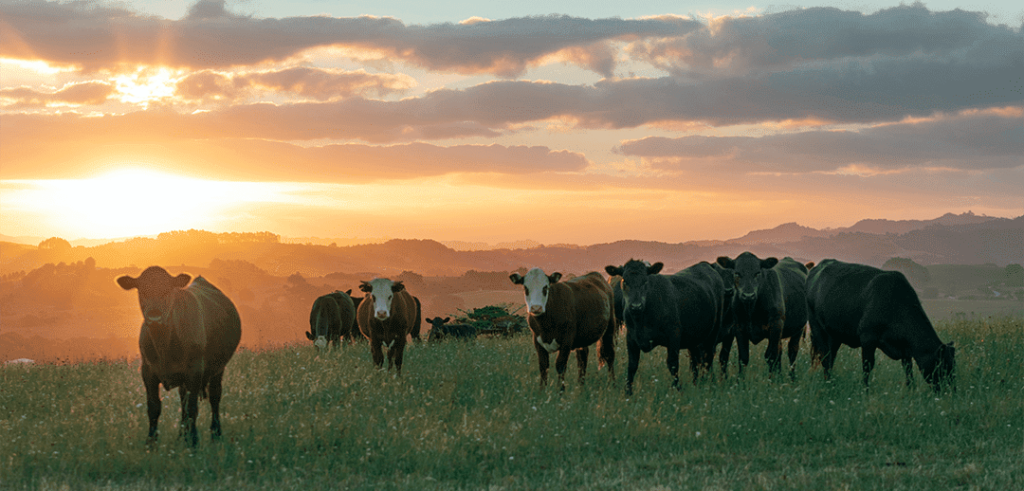
THIS week’s property review continues our two-part examination of the impact of the Federal Government plans to tax unrealised gains in superannuation for rural landholders. Click here to read last week’s first instalment.
This week, three senior financial advisors and accountants add their perspective to the likely impact of the tax on rural landholders.
Bentleys, Ben Cameron
Ben Cameron is a managing partner at Bentleys Queensland and has been fielding calls from concerned landholders for some time.
“A number of clients have large farmland exposures and in a portfolio of three or four assets, accumulated over decades, one property has generally been placed in the family’s super fund,” Mr Cameron said.

Ben Cameron, Bentleys
“Given the price of land has risen threefold in the last ten years, that super fund property would sell for a big number today. As a result of this impending tax impost, the client is now looking to transfer that asset out of superannuation.”
Mr Cameron said if the federal government’s super tax was approved and landholders wanted to move their holdings out of their super fund, they could incur capital gains tax and stamp duty depending on each members’ retirement status (ie accumulation or pension phase).
“If the tax legislation is passed, producers who leave their holdings in superannuation will have to put cashflow aside to pay the tax, as their land asset rises,” he said.
This became problematic when the members are not able to contribute into super due to their age, and cash earnings from the assets in the super fund are low.
In most cases, Mr Cameron’s advice to landholders is to move their farmland assets out of their superannuation fund.
“Before this tax was proposed, I was talking to clients about the consequences of keeping landholdings in super as they approach ‘pension mode’ where they are required to withdraw a minimum amount of money each year,” he said.
“Under these conditions, it is obvious producers can’t just sell a paddock to pay each years’ pension. In cases where that farm is a large proportion of the total assets of their fund, clients have no choice but to transfer the farm out of the super fund.”
Mr Cameron said the proposed new tax was another and bigger reason to get the ball rolling and get landholdings out of super.
“Some producers may have borrowings inside the super fund, but most of the time the asset is owned outright. So, if they don’t owe any money inside the super fund, then they have that asset to provide as collateral to a banker to lend new money.”
“However, it becomes a moral quandary for a bank when it is lending money to the elderly in the community. It’s not a good look for them if they have to close doors on an 80-year-old retiree,” he said.
Mr Cameron said the super tax may force the hand on succession planning, as clients will only want to pay the transaction costs (stamp duty and CGT) once.
He warned if a super fund becomes non-compliant, it faces severe financial penalties from the Australian Tax Office.
“If a self-managed super fund becomes non-compliant, the tax rate is 47 percent of the assets’ value in the fund which means you lose half of the fund.”
Mr Cameron said while the super tax won’t impact a huge number of people, it is feared it could be the start of taxing unrealised capital gains in other legal structures.
“Clients are asking, ‘Is this the start of something that hasn’t been done before?” The federal government may be starting with super funds, but what will it target next? Trusts? Companies?”
PwC, Tara Cuddihy
PwC partner Tara Cuddihy said the proposed tax is causing concern among primary producers, particularly those holding large agricultural properties in their self-managed super funds.
“A quick check on the March quarter 2025 statistics from the ATO shows around $111 billion in non-residential property in Australia held in self-managed super funds. So, that would include a large number of farming properties.”

Tara Cuddihy
“Some of our clients are managing large exposures and the implications of the tax will depend on the size of the property and their superannuation balance,” she said.
Ms Cuddihy said the tax raises many complicating factors.
“This is compounded by further factors including the membership of the super fund. For example, a fund that includes two generations of family members with differing balances, invested in one asset.”
“While a younger member may not be exposed to the potential tax because of the size of their balance, questions remain around older members with larger balances needing to potentially sell assets and the likely impact this has on the liquidity of the fund.
This tax has not been legislated, so Ms Cuddihy recommends not doing anything until it is has actually passed into law.
“Due to each client’s individual circumstances, there are many factors that need to be considered, and it possibly comes down to a spreadsheet exercise. If you are over 65 and retired, it is much easier to roll out of superannuation compared to younger members who will find it difficult to withdraw funds.”
Ms Cuddihy said there are also other taxes to consider because, generally, any transfer of property attracts stamp duty, unless specific concessions apply.
“The federal government is proposing to target levy balances above $3 million. If it becomes law, producers will need to determine how much their property is worth, what is the potential market value growth and what is the actual tax to be paid?”
While adopting a wait and see approach, Ms Cuddihy recommends having a conversation with a tax accountant and start running figures on the potential impact of the tax.
“There are areas of tax law that consider the seasonality of primary production. For instance, profits can be deferred if a producer is forced to sell livestock, due to droughts or floods. However, there is nothing in the proposed legislation that considers the ups and down of primary production.”
Ms Cuddihy said drought has a huge impact on cash flow but does the value of a property fall compared to bumper years?
“A property value might hold strong, but a producer does not have the liquidity to pay this potential tax? There are many unanswered questions. The proposed tax is likely to be levied on individuals so the question is whether there is enough liquidity to pay the tax personally or whether an amount would need to be released from the super fund to pay it, also raising the question of liquidity for the super fund.”
BDO, Paul Rafton
Paul Rafton is a partner at BDO’s Business Services Superannuation.
He said a number of rural clients have expressed concern about the new proposed superannuation tax and more broadly, clients with ‘lumpier’ assets that includes commercial property.

Paul Rafton
“Our early advice to is to wait and see what the legislation looks like. Nothing is set in stone yet, and nothing will happen until parliament reconvenes in July after its winter recess.”
“Start talking to your accountant and determine the best strategy moving forward but don’t act in haste until the legislation is approved. Potentially pulling assets out of super now could be difficult to put back in and will incur transaction costs, such as stamp duty,” he advised.
Mr Rafton said each client will need bespoke advice.
“Of the 500 plus clients, no two are the same. Each may be impacted differently by the proposed tax and therefore dealt with accordingly.”
Mr Rafton said if legislated, the super tax would be levied on individuals with movement in their superannuation balance above the proposed $3 million cap.
“BDO understands it will be a personal tax and if a primary producer was unable to pay due to adverse seasons or the like, money could be released from the super fund to pay the outstanding tax debt.”
Mr Rafton said producers need to bear in mind, the first test date for this legislation is June 30, 2026.
“That means there is time after 30 June, when we know what the legislation looks like, to plan and come up with a measured approach to the tax and its implications.”
Mr Rafton said it is important clients look at their overall circumstance.
“It is important not to overreact to this tax. Work with your accountant to come with up with some modelling around the tax that might be payable in the super fund versus any other vehicle they might otherwise transfer the property to.”

HAVE YOUR SAY